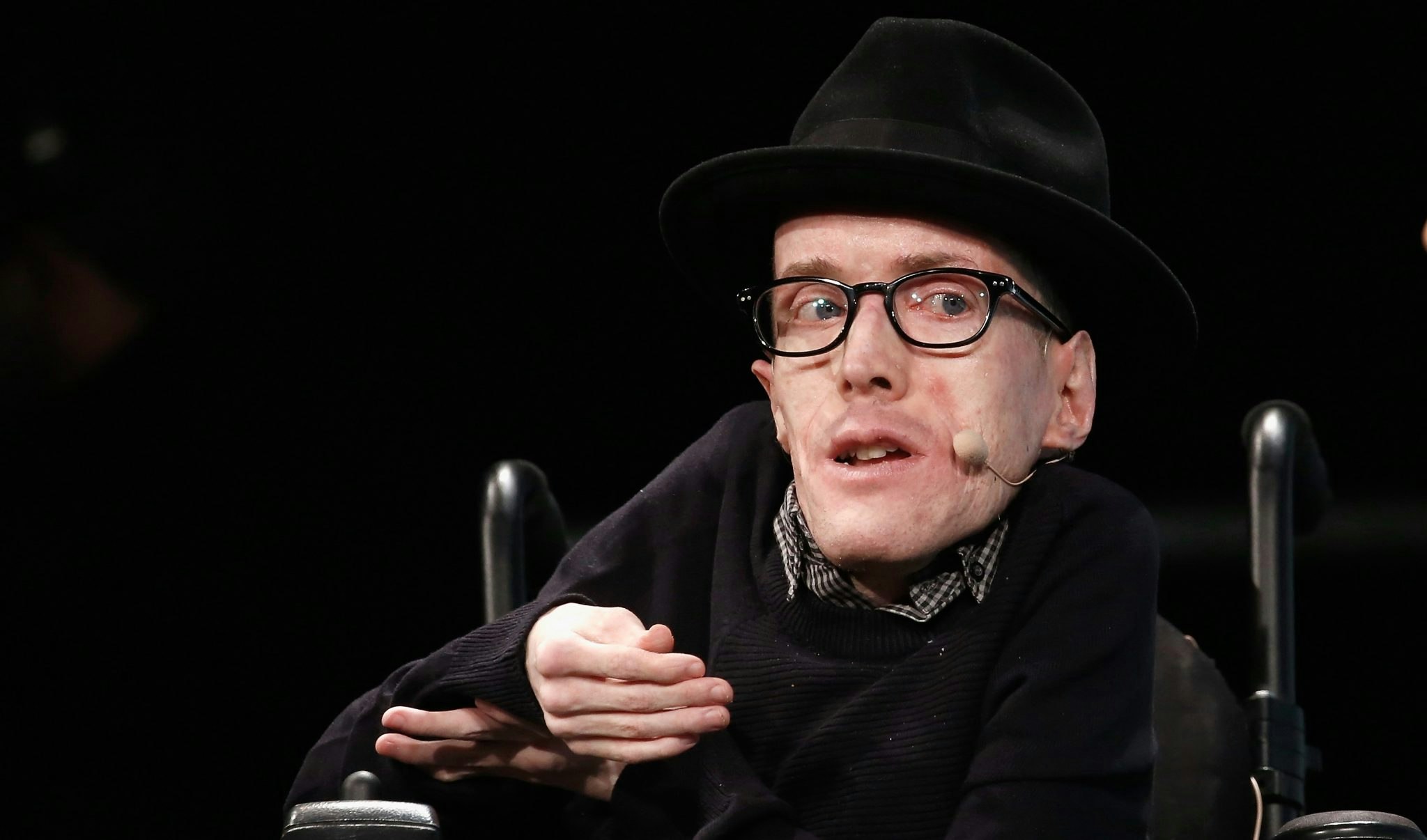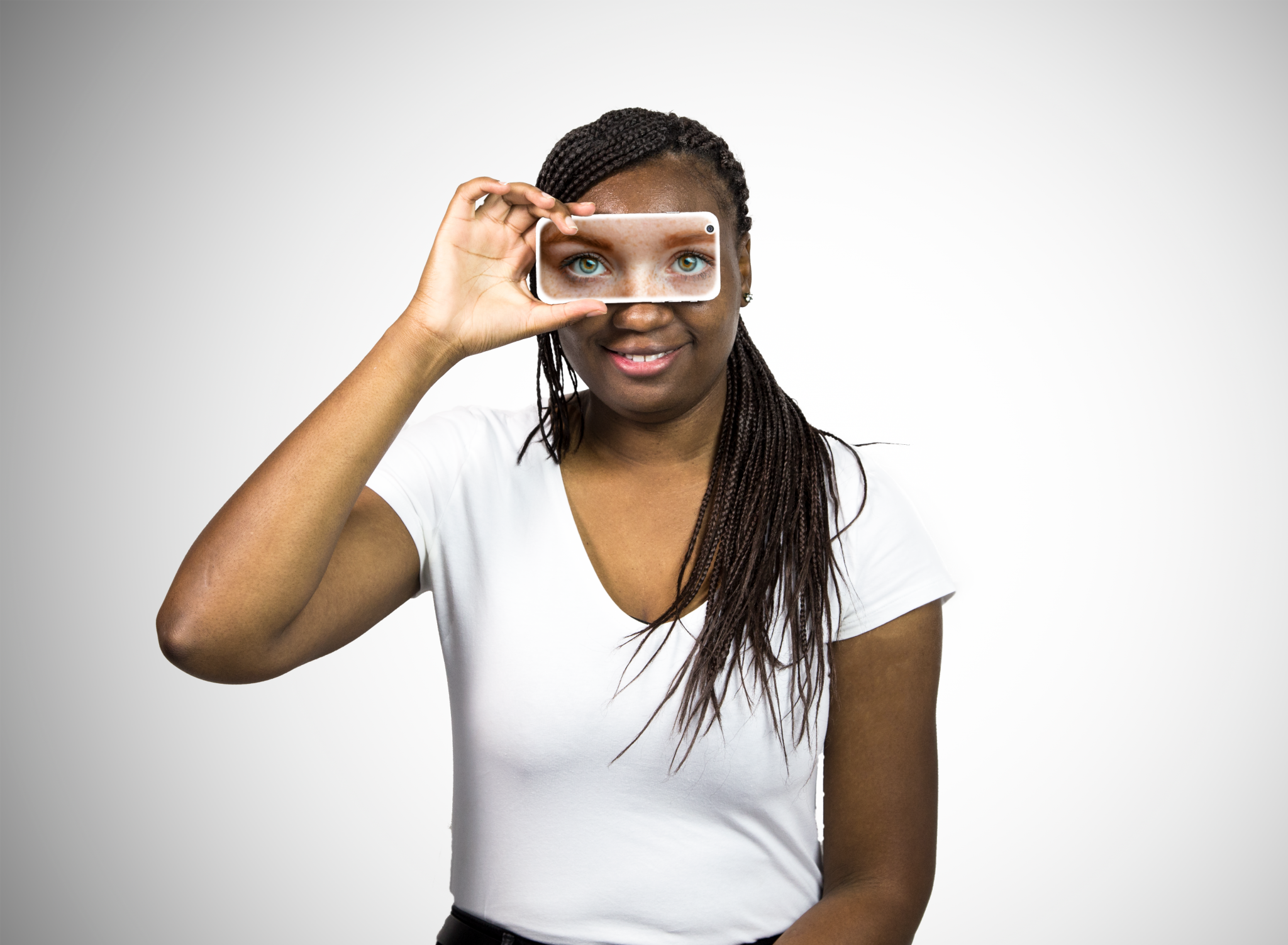The shift to remote work over the last year has no doubt opened up career opportunities for people with disabilities, says Franziska Hauck, people lead and coach in engineering at Berlin-based software company Signavio and disability advocate.
But it hasn’t been the wakeup call that startups really needed to make their workplaces more accessible and inclusive.
“Sure, now that companies have realised they can operate remotely, they might be more willing to hire a person with a mobility impairment and let them work from home,” she says. But that doesn’t mean companies are actively trying to attract and support people with disabilities — which are an estimated 135m people in Europe (or almost 20% of the population).
Companies are like: ‘Oh great, remote working opens up the possibility to attract more diverse groups — but they still forget about people with disabilities.
“Companies are like: ‘Oh great, remote working opens up the possibility to attract more diverse groups and be more accessible — but they still forget about people with disabilities,” Hauck adds.
“I haven’t seen many companies going out there and saying: ‘We’ve put in ramps, we’ve put in braille code in the elevators, we already have a list of accessible software that people can use and you don’t have to ask for it’.”
In fact, there is so much “low hanging fruit” — small things companies can do to be more accessible — which is “routinely ignored because of a lack of awareness,” says Hauck, who herself lives with a chronic illness.
So, what can startups do to proactively support people with disabilities?
Set employees up for success
For starters, ask employees what they need to do their best work.
“I think there’s a tendency [among startups] to over-intellectualise it – when really it shouldn’t be that complicated,” says Steve O’Hear, vice president of strategy at London-based grocery startup Zapp and former TechCrunch journalist. “Setting up an employee for success is something that you want to do for everybody — no matter what different needs they have.”
When O’Hear joined Zapp, “a super fast-growing, challenging startup”, in April this year, he had a frank conversation with the CEO about the conditions he’d need to do his best work.

“I said to him, look: I need to work 100% remotely — partly because Covid is still lingering and if I caught it, it could be extremely dangerous. But also, I have other needs related to my disability.”
O’Hear says he has certain respiratory challenges which are better managed from home. And travelling to an office on public transport as a wheelchair user “isn’t very fun either.”
“I also told him that I can't do back-to-back zooms; I need time away to recharge a bit. It’s quite an intricate sort of dance that goes on throughout the day.”
And the CEO’s response? “He said, ‘That’s absolutely fine. Tell us what you need, and we’ll put the systems in place’.” For example, it’s understood that O’Hear works 100% from home, doesn’t do meetings in the office and has full control over his schedule.
O’Hear’s experience so far with Zapp has been pretty “outstanding” — especially since startups, in general, are poor when it comes to supporting people with disabilities. He thinks that’s partly because disabled people aren’t “one homogenous group” which is what makes inclusion seem so challenging to startups.
Getting diversity in startups is only half of the battle; inclusion is equally, if not more important.
“When it comes to the D&I agenda, getting diversity in startups is only half of the battle; inclusion is equally, if not more important. Because once you get through that door, your workplace needs to set you up for success — it’s critical to you actually staying in the company and carrying out your job.”
Plan accessibility from the get-go
It’s always best for companies of any size to plan for accessibility from the beginning, without waiting for someone with a disability to join your team, says Angela Matthews, head of policy at the Business Disability Forum. The UK-based organisation helps businesses implement supportive structures to help disabled people get into work and have a good experience in the workplace.
Doing so is not only cheaper, but it helps to send out a positive message about your business to potential hires.
“However, some adjustments relate to the specific needs of the individual employee. Those would need to be made later,” she adds.
It’s a general requirement for startups to make their office buildings accessible — not just for employees, but visitors too.
Hauck advises going through the building with someone in mind who has accessibility challenges: Do you have ramps and lifts? What about railings so people can grip onto them going up the stairs?

Vimcar, a fleet tracking provider based in Berlin, has recently opened a new office which is designed to be easily accessible throughout.
“We have installed ramps and an electric door at the entrance that opens automatically. This means that employees with limited mobility or in wheelchairs can easily access the space, without having to try to hold a heavy door open,” says Nana Ofosu, Vimcar’s vice president of people and organisation.
Hauck says that implementing voice technology and braille code throughout the building can also help those with visual impairments to navigate their way around. London-based startup Wayfindr, for example, provides organisations with the tech and resources for audio navigation in indoor spaces.
“If you have someone that’s hard of hearing in your team, put them in a position where they can see people coming into the room, so they’re not surprised by someone approaching them,” says Hauck, adding that this is an example of a small adjustment that startups can make to really benefit an employee.
Have a standard set of software
Having accessibility software all ready to go, without employees having to ask for it, is crucial for setting new hires up for success, says Hauck.
She tells the story of her friend, who has dyslexia, who couldn’t work for five weeks when he joined a new company as he needed a screen reader. The business was slow to get him one.
“You have a person who is perfectly qualified and they only need a tiny little programme that is mostly already installed on a lot of computers and [the company] just said, ‘Yeah, just request it here and wait’.”
As a starting point, startups should ensure they have screen readers, enlarged keyboards, screen enlargement applications and voice recognition programs already installed on their computers. Microsoft, for example, has a number of accessibility solutions built into Windows 10 and Office 365. These include closed captioning, live call transcription and narrator-to-read text.
Vimcar’s new office space includes an update of its technology too. The company has arranged to get specialised computer screens that can invert colours to assist those with visual impairments.

“Also, just generally using closed captioning for all meetings in your company is essential for signalling to employees — who may not have disclosed their disability — that you care about their needs,” adds Hauck.
Reconsider open working areas
Open-plan offices can be a nightmare for some employees — especially those who live with neurodiversity.
According to a 2020 survey by Stack Overflow, an online community for developers, 5.4% of 45,446 respondents identified themselves as having a concentration or memory disorder, like ADHD. 2.3% identified as having autism or an autism spectrum disorder.
For these workers, quiet spaces can make a big difference. “I wouldn't underestimate the power that you can have by simply changing things like noise level distraction, visual and auditory distractions and so forth — that is crucial.” says Hauck.
Startups could also consider having breakout rooms which any employee can use to collect their thoughts, refocus and just take a breather. Google, for example, has quiet meditation pods in its offices where employees can hide out and even take a nap.
Over in the VC world, startups building solutions to help those with neurodiversity have traditionally been underfunded – but awareness of the category is growing among investors. Yesterday, Amol Desphande, former partner at Silicon Valley-based firm Kleiner Perkin, announced the launch of a new fund, Divergent Investments, of his own capital to invest in startups focusing on neurodiversity, healthtech and edtech.
Create safe spaces for disclosure
Startups can’t always count on employees feeling comfortable to disclose their disability — they have to actively create an environment where people feel safe to do so, says Matthews.
“I think many employers and service providers have very high expectations of what they expect disabled people to share about themselves. I mean, I don't go into my bank and say, ‘Hi, I'm Angela Matthews, I have PKU (phenylketonuria), autism and I've had a stroke.’ I just expect that they have inclusive products and services that everyone can use.”
According to Matthews, making people feel comfortable to talk about their disability or illness is all about the manner and the setting in which you approach the topic.
“It doesn't have to be; are you disabled? And what reasonable adjustments can I make for you? It can be: ‘Tell me about yourself? How do you like to work? Here is the job that you’ll be doing; how can we make it easier for you — so that you’ll enjoy it and do your best?”
“It can be a conversation that is warm, that is human, that isn’t filled with legal language and that doesn't require someone to identify as disabled.”
Don’t get hung up on a person’s disability and condition. Think more about: what accessibility barriers could your business potentially be causing?
Parma Sira, a small business disability adviser at Smarter London SMEs, agrees: “Don’t get hung up on a person’s disability and condition. Think more about: what accessibility barriers could your business potentially be causing? What could be stopping employees from flourishing?”
It’s also important to remember, says O’Hear, that what might seem like a policy for someone with a disability may be equally inclusive and beneficial for other team members. For example, having flexible working hours can help parents schedule in picking up their kids from school. Or, it could allow an employee to take time out for prayer in the afternoon.
“Making certain adjustments universally available across the board is how you really make the conversation about disability less taboo,” he adds.
Miriam is Sifted’s Germany correspondent. She tweets from @mparts_


